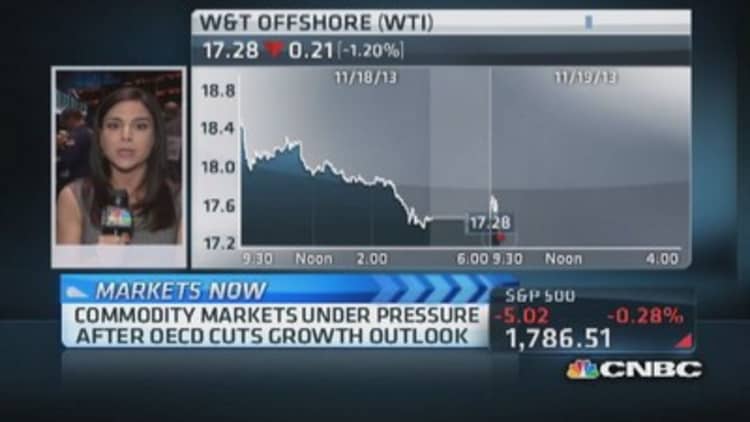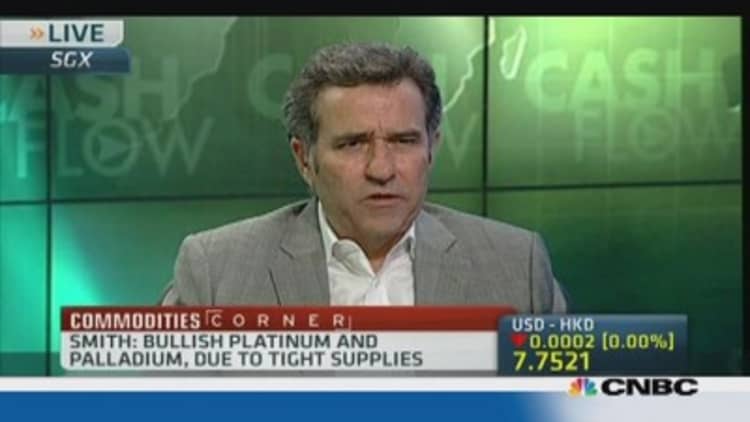Developed markets, including the United States, may be recovering, but the long-suffering commodities segment may not feel the love.
"It's not a build-construct scenario," said Bhaskar Laxminarayan, chief investment officer in Asia at Bank Pictet & Cie, which has around $433 billion under management. Previously, commodities were driven higher by the emerging market growth story, which included huge investments in infrastructure, he said.
While Pictet recommends investing in equities that will benefit from a U.S. domestic demand revival, such as autos and housing, "it's not as significant as building highways all around the world or putting up factories," he said. "It's not enough for a bull-run case for commodities."

Emerging markets' demand for commodities may not pick up the slack, he noted. India, for example has had a complete deceleration of investment, with at least $120 billion of projects stalled by the end of last year, he said.
"There are just too many projects that are stuck. And that has a sentiment effect on businesses that want to invest into the country, plus local businesses that want to partner with them," Laxminarayan said.
Other analysts are giving commodities the cold shoulder as well, with Credit Suisse saying the segment may be at the start of a secular bear market.
(Read more: Dennis Gartman likes'simple things': Coal, steel, copper)
"The 'glory days' of the commodity bull market are well behind us, with prices likely to continue to revert to more normal levels over coming years," said Ric Deverell, head of global commodities at Credit Suisse, in a note.

He expects commodity prices to come under pressure in 2014 as emerging market industrial production growth slows.
"The combination of increased supply for many commodities, as well as continued structurally weaker emerging market growth (we expect China to slow back toward 7 percent) is likely to cause many prices to continue to stagnate through 2014, with those commodities experiencing a long-awaited increase in supply coming under the most pressure," he said.
Credit Suisse expects prices of iron ore, copper and gold to fall substantially, while tin, thermal coal, U.K. and U.K. natural gas, Brent oil and silver will remain flat.
(Read more: Why I just turnedbearish on natural gas: Pro)
Another factor which may keep commodity prices in check is U.S. dollar strength.
Early next year, "quantitative easing will be reduced in some form. That means the easy money that has flown to the rest of the world will, in some form, go back to the U.S.," Laxminarayan said. "That will provide some strength for the U.S.dollar. If I look out three to five years from now, we are in a very structurally strong U.S. dollar market."
— By CNBC's Leslie Shaffer. Follow her on Twitter: @LeslieShaffer1

